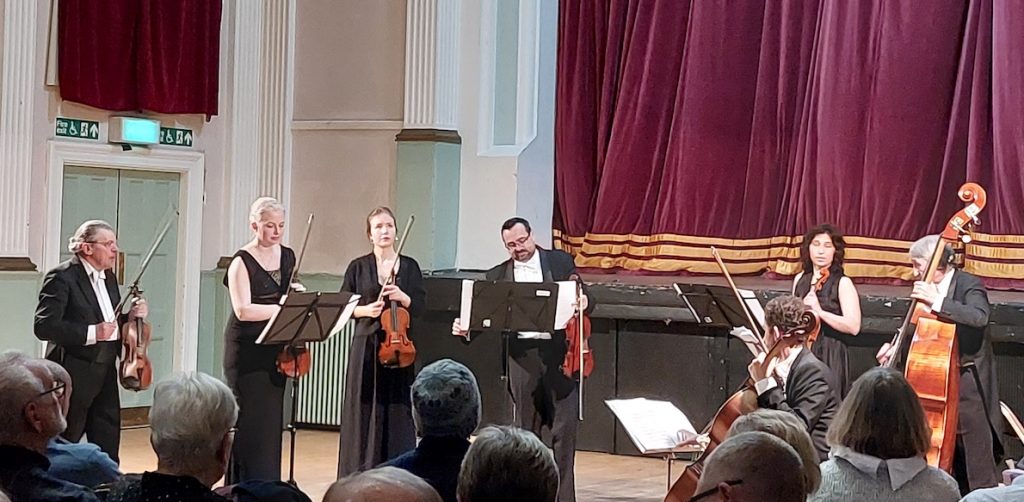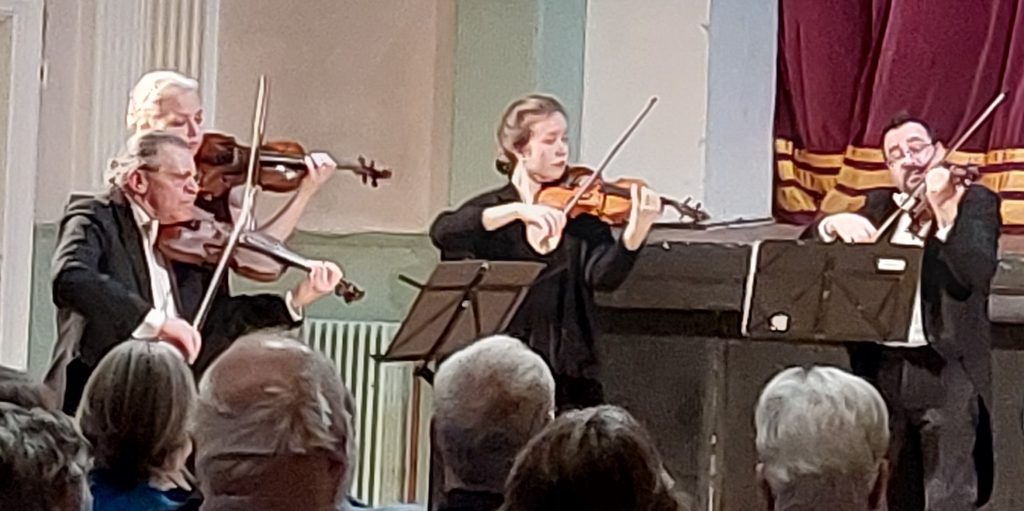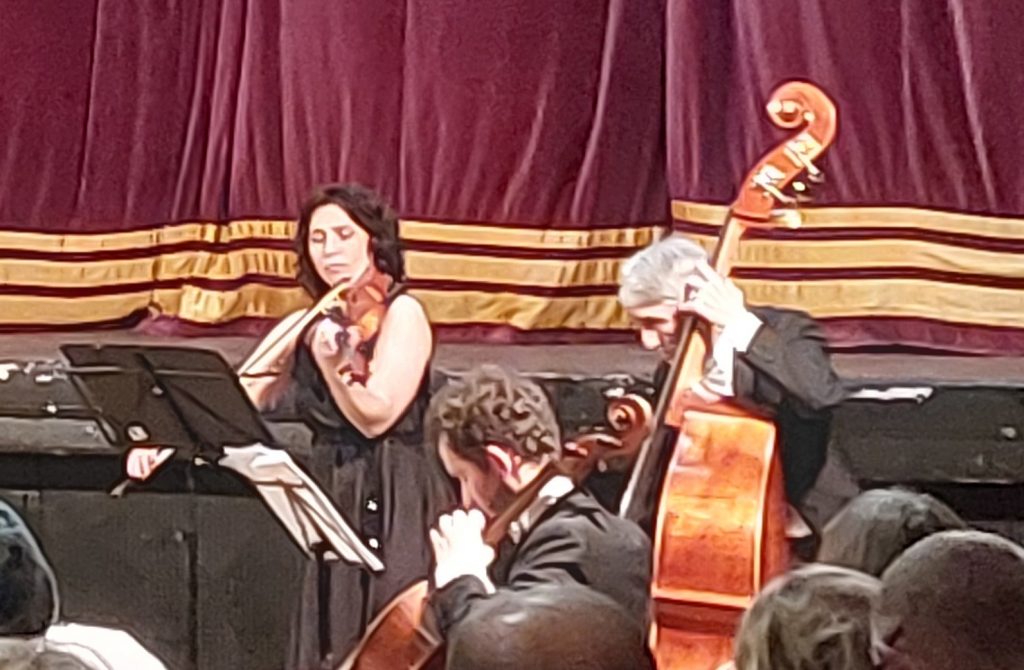As hard as it is to believe, another Inverurie Music concert series is drawing towards its conclusion and this concert, on an unseasonably cold Aberdeenshire night, was the penultimate offering from another wonderful year of performances. And was there any better way to celebrate such wonderful music-making than an almost full house at the Inverurie Town Hall? A large and gratified audience heard a fantastic concert of string music, from Baroque classics to English romantics and the premiere of a brand-new work as well.

The Kammerphilharmonie Europa, a small string orchestra with trumpet, are made up of some of the finest players from across Europe and are in the middle of an extensive tour of the British Isles. They had visited Inverurie ten years previous and if the rapturous response to their performance is anything to go by, it is hoped that it isn’t another decade before they return. The concert began with Vivaldi’s short but memorable Concerto for Strings in G Minor (RV157), a fantastic opportunity for the strings to set the mood and tempo for the evening. The final movement was full of verve and poise as the violins duelled for supremacy before a frenetic finale brought the work to a close. This was followed by another brief Baroque concerto, this time Albinoni’s Concerto for Trumpet in Bb Major, originally written for oboe but here performed with gusto by the philharmonic’s trumpeter Cyrill Gussaroff. Again, the ensemble showed great energy and concentration as the filigree string passages supported the soaring trumpet lines with aplomb. The first half of the concert ended with one of the staples of the Baroque concerto repertoire, Bach’s Violin Concerto in A Minor, BWV1041, a piece well-known to many of the audience without doubt. The highlight of the performance was undeniably the long, rhapsodic middle movement where the expressive solo violin was constantly tethered by the obsessively repeated bassline, a compositional problem that only Bach could solve, but one that he did with such elegance and skill.

The second half of the concert shifted the focus from the Baroque to the twentieth century and from Central Europe to the yearning pastoralism of English composers Delius and Holst, but not before a short ‘diversion’ in the form of Mozart’s Divertimento, K136. This piece was full of effervescent charm and grace and although classed as ‘light music’, there was plenty of expression and thoughtfulness to suggest music of weightier composition. Again, the work was performed with consummate skill and technique by the ensemble, obviously enjoying the careful interplay of Mozart’s score. Delius’s Two Aquarelles are arrangements of wordless chorus pieces for string ensemble by his amanuensis Eric Fenby in 1932 that have gone on to have arguably more performances than his original part-songs. The sound-world was far removed from the clarity of the Baroque pieces and the whimsy of Mozart, here lusher and dreamier – an opaque vision of a mythical summer replete with watery textures and lithe melodies. Holst’s St Paul’s Suite is one of the most beloved string orchestra pieces in the British repertoire, beginning and ending with rumbustious dances with the composer reserving his most ravishing music for the reflective ‘Intermezzo’. Both works were performed in an idiomatic and colourful way by the ensemble, all handling the shift in tone admirably.
The programme ended with the premiere of the author’s Three Meditations in a new arrangement for string ensemble. It was a privilege to write for these wonderful musicians and although it would be wrong of me to delve too deeply into this music, needless to say, it was a beautiful performance that was well received by the audience. There was still time for some spirited encores and a little relaxation from the ensemble before the final thundering applause receded – another wonderful evening of creativity and performance in the Garioch.
©PAC 22/4/24





Comments: no replies